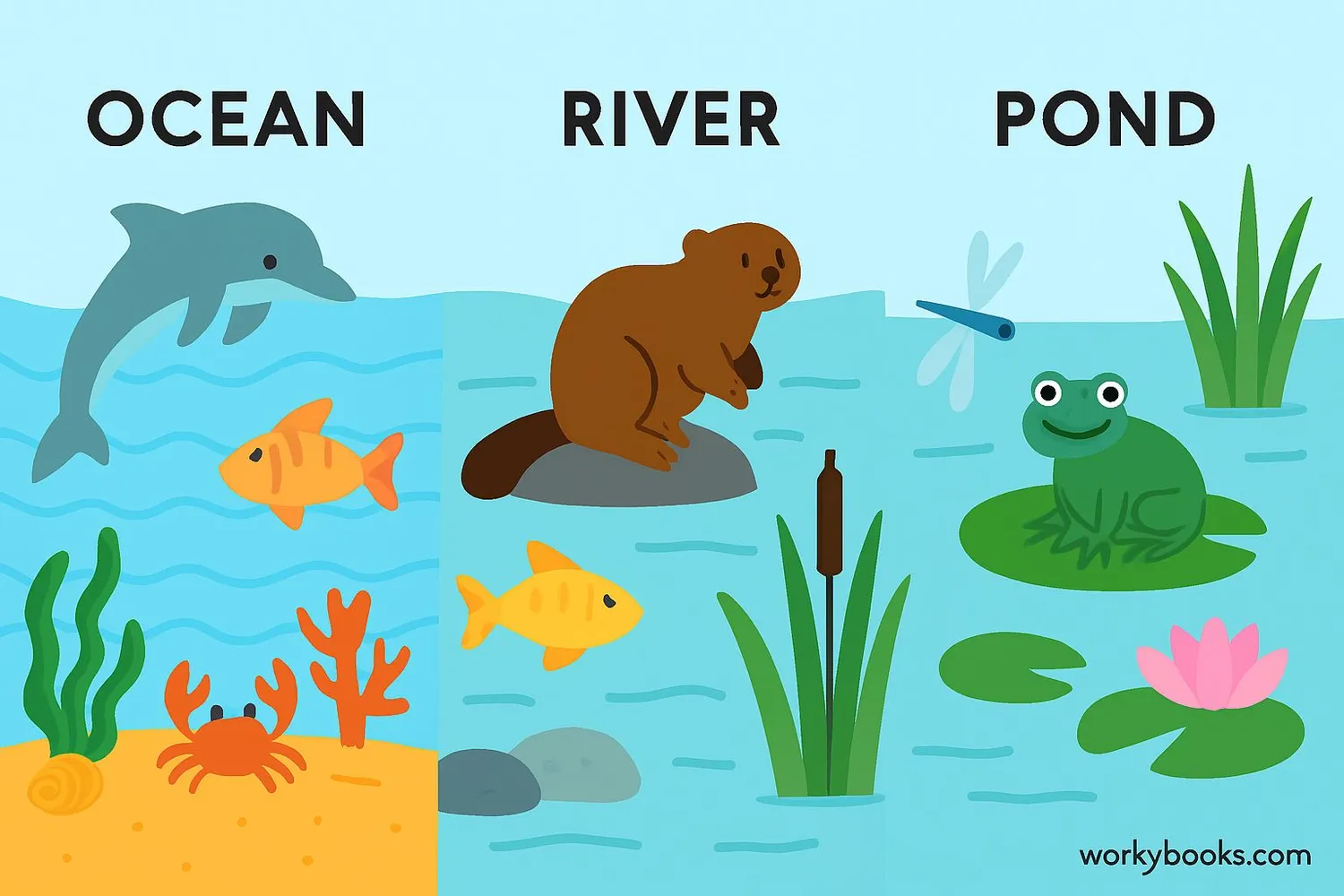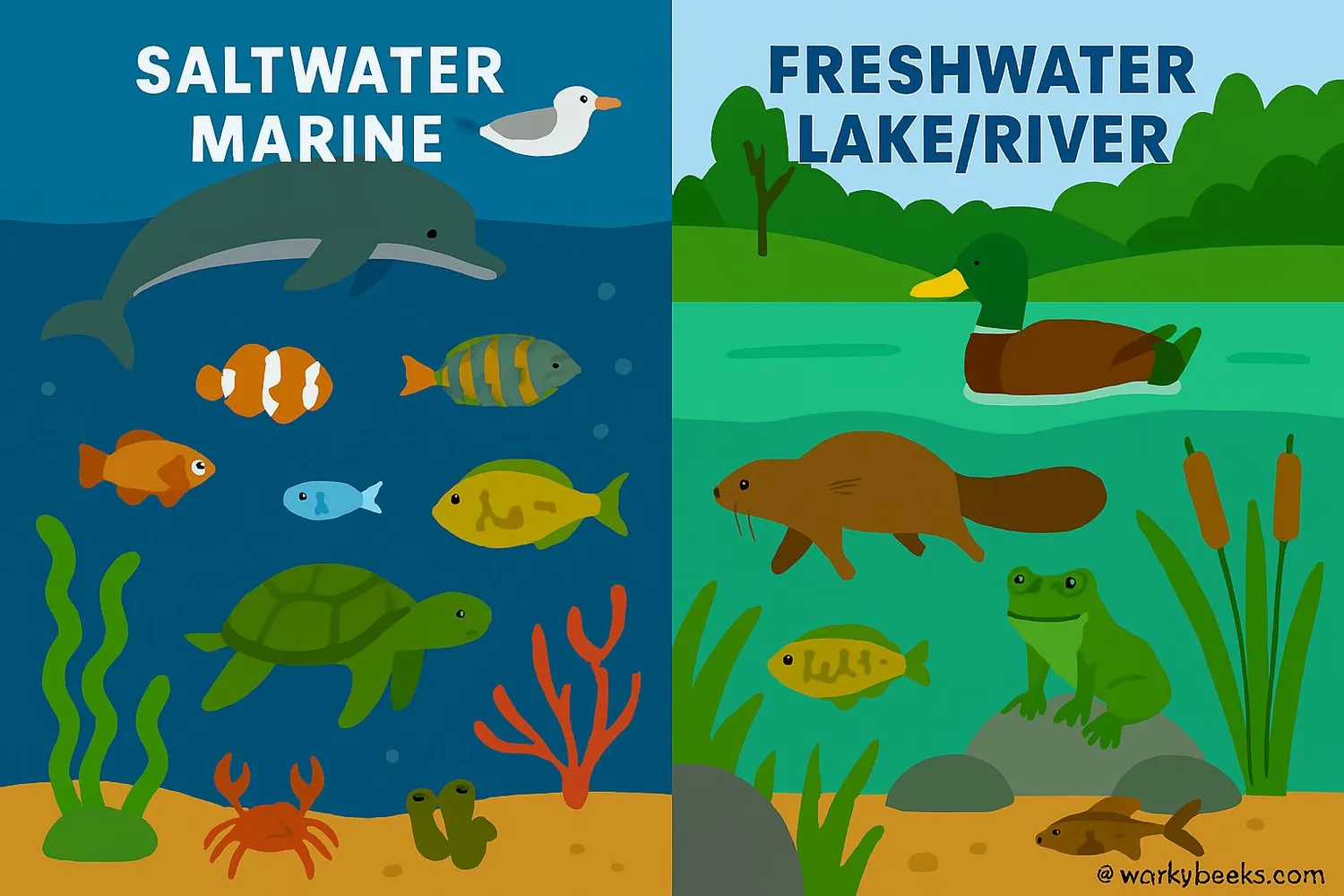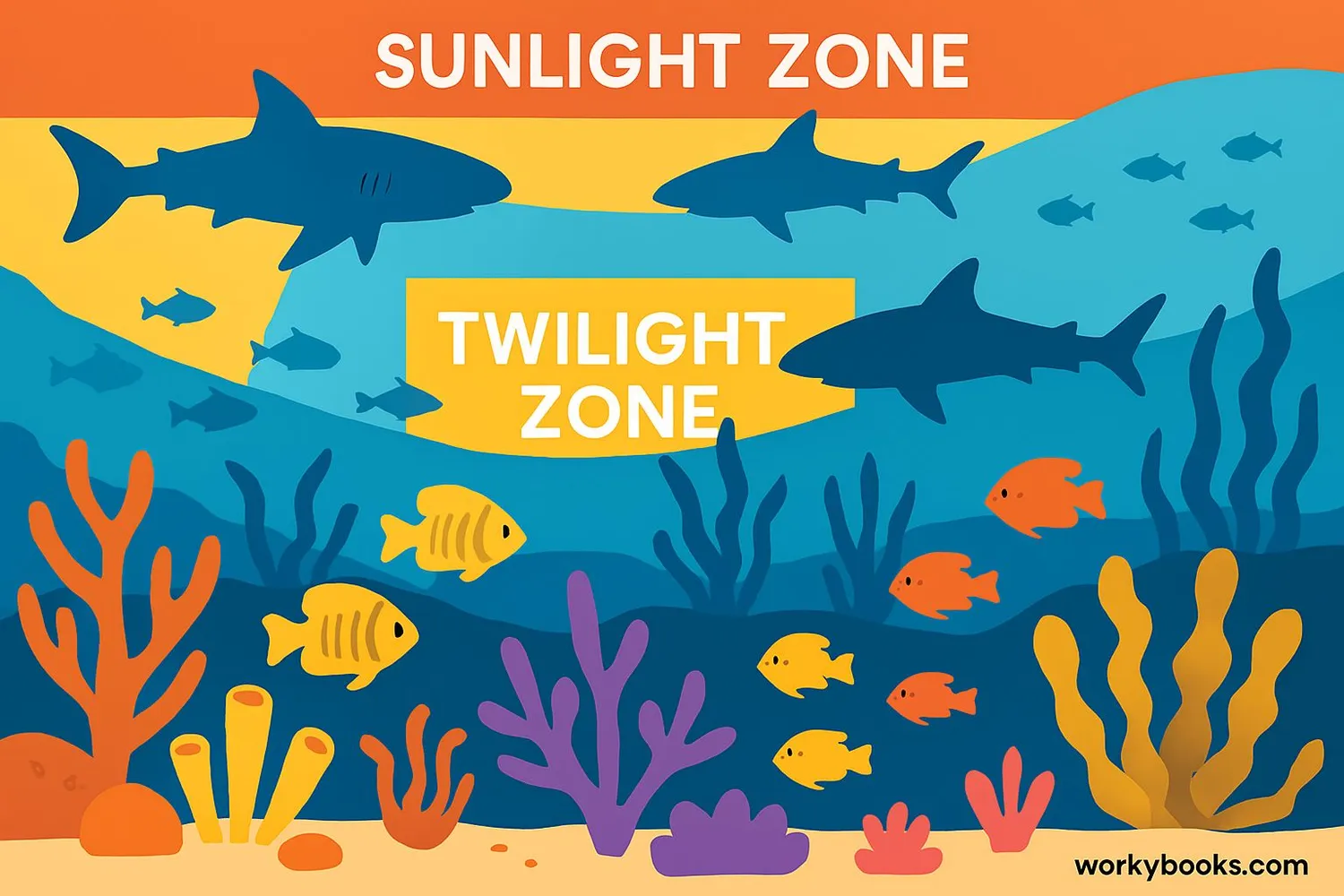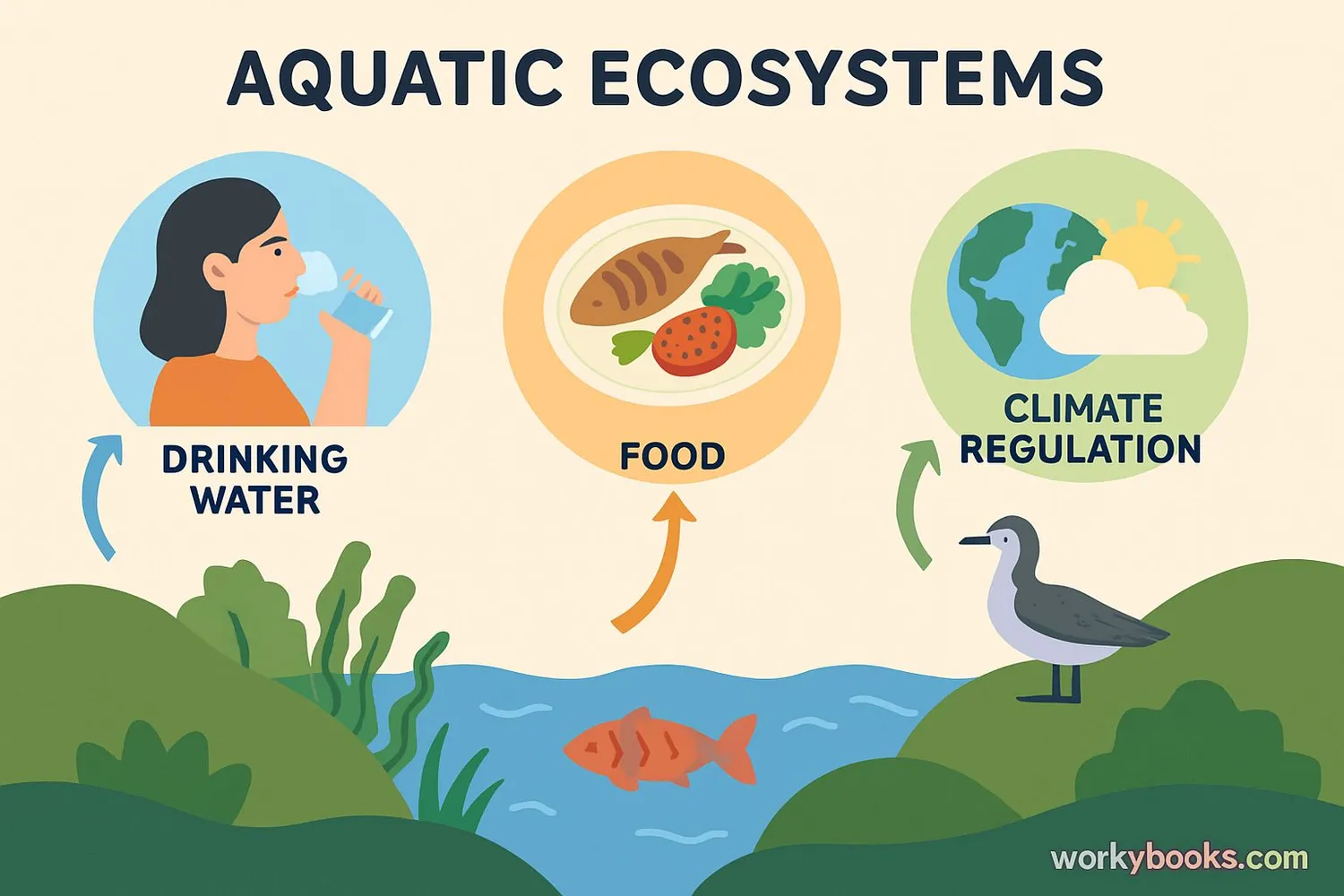Aquatic Ecosystems - Definition, Examples, Quiz, FAQ, Trivia
Discover how water habitats support amazing plants and animals!
What are Aquatic Ecosystems?

Aquatic ecosystems are water-based environments where living things interact with each other and their surroundings. They cover most of our planet and include oceans, rivers, lakes, ponds, and wetlands.
Think of them as neighborhoods for water creatures! Just like we have houses, schools, and parks, aquatic ecosystems have different areas where plants and animals live, find food, and raise their young.
Water Fact!
Aquatic ecosystems cover about 71% of the Earth's surface - that's why Earth is called the "Blue Planet"!
Types of Aquatic Ecosystems

Aquatic ecosystems are divided into two main types based on the water's salt content:
Marine Ecosystems
Saltwater environments like oceans and seas
Freshwater Ecosystems
Water with very little salt like rivers and lakes
Marine ecosystems contain about 97% of Earth's water, while freshwater ecosystems have only 3%. Both are incredibly important for life on our planet!
Marine Ecosystems

Marine ecosystems are saltwater environments that include:
Oceans: The largest ecosystems on Earth with different zones from sunlit surface waters to dark deep sea trenches.
Coral Reefs: Often called the "rainforests of the sea" because of their amazing biodiversity.
Estuaries: Where rivers meet the ocean, creating nutrient-rich environments.
Ocean Fact!
The ocean contains 99% of all living space on Earth! Scientists estimate there may be over 2 million marine species we haven't discovered yet.
Freshwater Ecosystems

Freshwater ecosystems have water with very little salt (less than 1%). They include:
Rivers and Streams: Flowing water ecosystems that carry nutrients from mountains to oceans.
Lakes and Ponds: Standing water bodies that can be small ponds or huge lakes.
Wetlands: Areas where land is soaked with water, like marshes and swamps.
Plant Life
Water lilies, cattails, reeds, and algae
Animal Life
Fish, frogs, turtles, beavers, and water birds
Special Role
Filter water and prevent flooding
Why Aquatic Ecosystems Matter

Aquatic ecosystems are essential for many reasons:
Habitat
Home to countless plants and animals
Food Source
Provide fish and plants for humans and animals
Climate Regulation
Oceans absorb heat and CO₂ from the atmosphere
Without healthy aquatic ecosystems, we would lose:
• Sources of drinking water
• Much of our food supply
• Protection from storms and floods
• Beautiful natural places to enjoy
That's why it's so important to protect our rivers, lakes, and oceans!
Aquatic Ecosystems Quiz
Test your knowledge with this fun quiz! Answer all 5 questions to see how much you've learned.
Frequently Asked Questions
Here are answers to some common questions about aquatic ecosystems:
Amazing Water Facts
Discover some fascinating trivia about aquatic ecosystems!
Ocean Depths
We've explored less than 5% of Earth's oceans! The deepest part is the Mariana Trench, which is deeper than Mount Everest is tall.
Mighty Rivers
The Amazon River carries more water than the next 7 largest rivers combined! It releases so much freshwater that it changes the ocean's salt content near its mouth.
Species Diversity
Coral reefs cover less than 1% of the ocean floor but are home to 25% of all marine species! They're the most biodiverse ecosystems on Earth.





